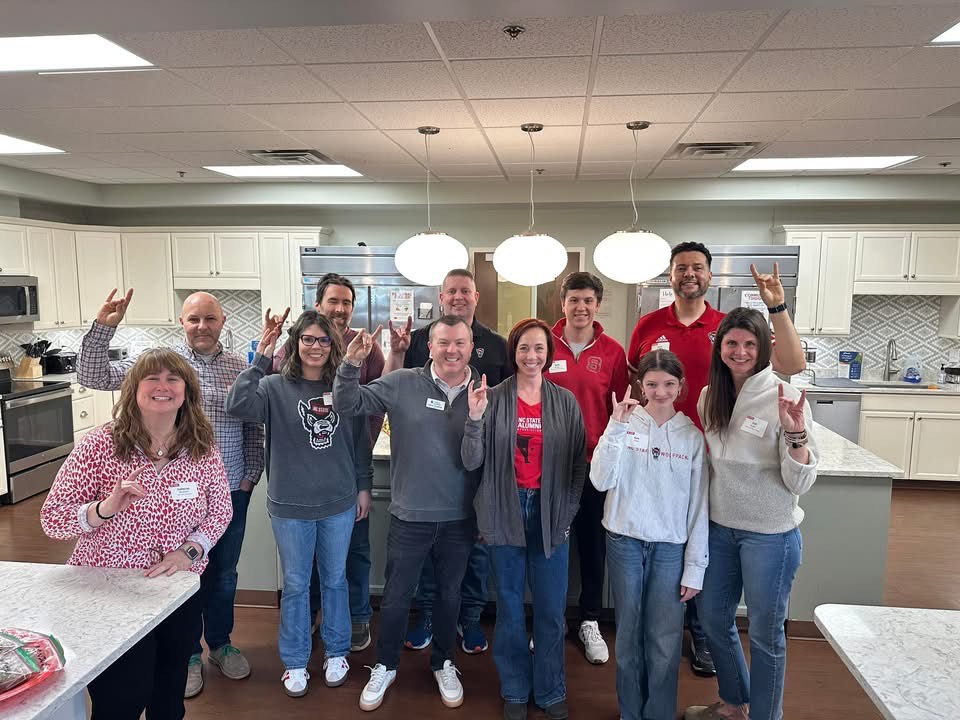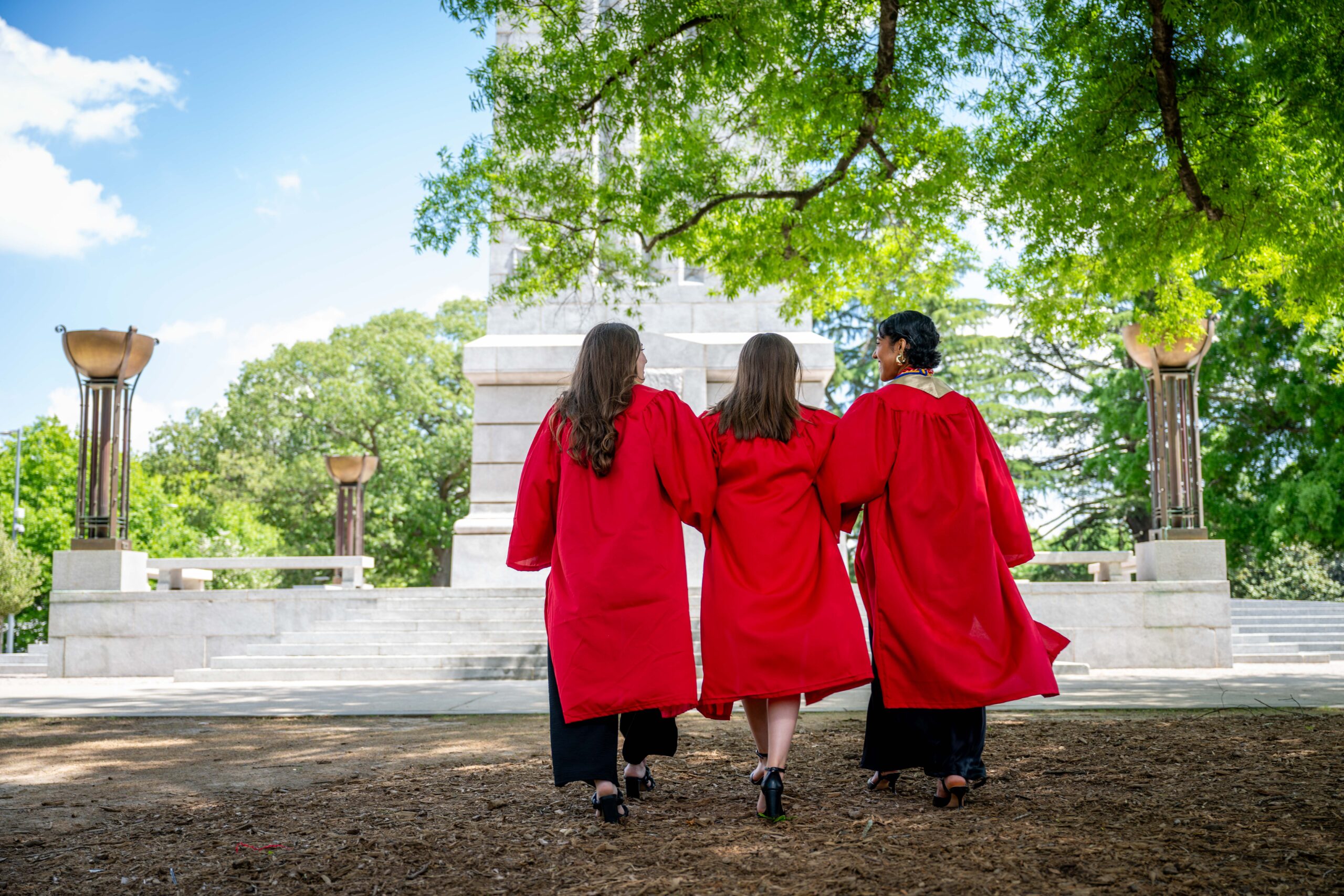What She Never Had: Laura Allred ’79 Gives in Honor of Her Mother
Laura Allred created the Marilyn Wattenbarger Scholarship Endowment, a need-based scholarship in the Wilson College of Textiles aimed toward helping applicants like her mother — academically gifted students who need an extra helping hand to assist with the burden of costs.
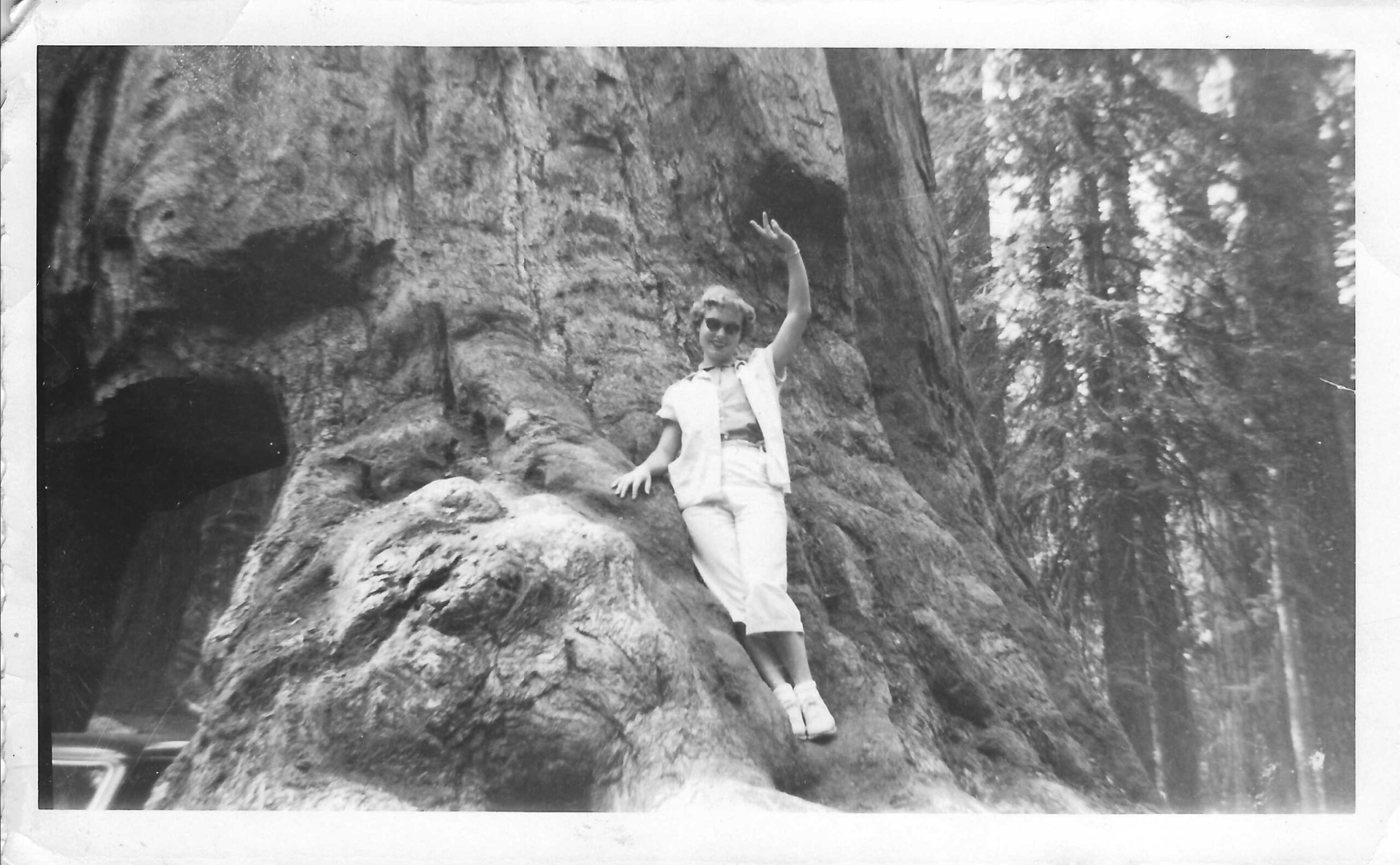
In 1951, a young woman named Marilyn Wattenbarger graduated from high school with outstanding grades and a stack of strong scholarship recommendations.
“Marilyn comes from a splendid background and has inherited leadership qualities of unusual degree. She has always proven herself to be of the highest moral and spiritual character, perfectly reliable in every way. Should any group choose her to be a recipient of their scholarship, their gift would be most wisely placed.”
“She is a willing worker, eager to learn, and will put her whole heart and soul into her work … She is a most deserving young lady and I know that any investment in her future will certainly pay dividends to society.”
“In my estimation, there are few prospects among high school graduates better qualified as a candidate for your annual scholarship than Marilyn Wattenbarger.”
Wattenbarger, however, did not receive the scholarship she needed to afford college.
Instead, her daughter, Laura Allred, did so 23 years later from what was then NC State’s School of Textiles, going on to build a successful career in textile design.
Now, Allred is creating the Marilyn Wattenbarger Scholarship Endowment, a need-based scholarship in the Wilson College of Textiles aimed toward helping applicants like her mother — academically gifted students who need an extra helping hand to assist with the burden of costs.
The Life of Marilyn Wattenbarger
Wattenbarger grew up in a rural area of California, just a couple hours outside Yosemite National Park. Her parents divorced before she reached high school so she was supported primarily by her mother, an uncommon experience for the 1940s. Because of this, Wattenbarger worked when she wasn’t in school, helping to provide for the family alongside her two sisters.
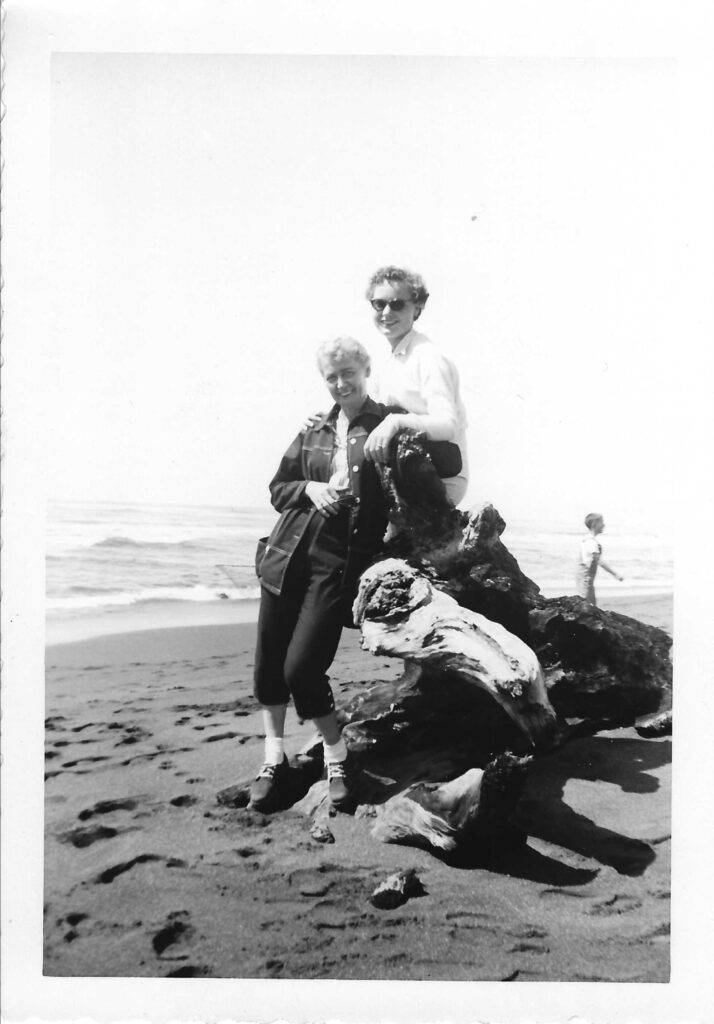
Allred ’79, described a favorite family story about her mother working for a local orchard during World War II. “[She] and one of my aunts entered into a contest to benefit the war efforts — a competition to see who could slice and remove the pits from apricots the fastest.”
It’s no surprise to Allred that her mother and aunt swept the competition, even when facing grown women. “That’s my mom, she was always striving to be the best at anything she did.”
That work ethic continued into high school, where Wattenbarger graduated as salutatorian. She had earned two small scholarships, but with an older sister already in college, those scholarships weren’t enough.
Instead of heading to college, she got a job at First National Bank as a teller, working to save money toward a college education throughout the year. Wattenbarger continued applying unsuccessfully to scholarships.
Unfortunately, for the second time, Allred’s mother was not given an opportunity for a life-changing scholarship. By November of 1952, she had married Allred’s father and after his stint in the Air Force, the pair drove across the country to live in his hometown of High Point, North Carolina.
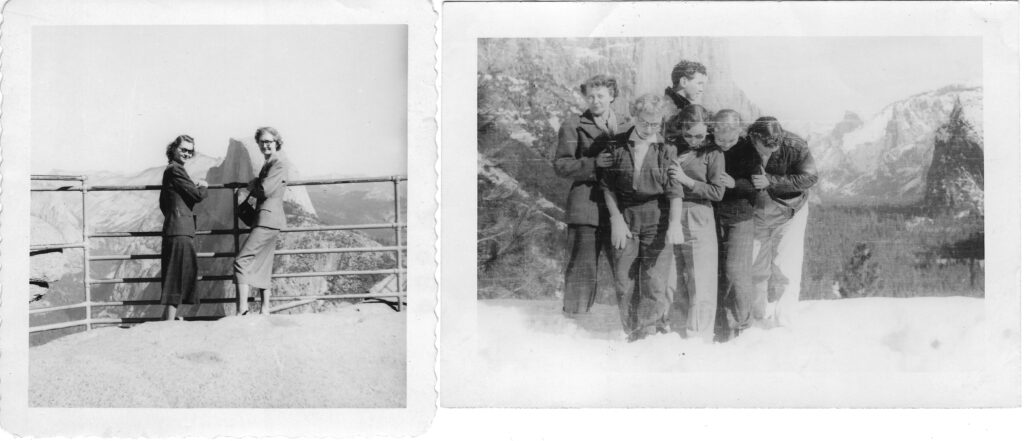
Allred’s father had also been raised by a single mother, and faced similar financial restraints to Wattenbarger’s family while growing up. But thanks to the G.I. Bill, he was able to attend college once they moved back to North Carolina.
“He always credited my mom for his being able to get through college,” said Allred. “She worked during the day while he took classes, and then helped him study at the kitchen table in the evenings.”
Despite not earning a bachelor’s degree, Wattenbarger was an intellectual force of nature, constantly learning new things and teaching her three daughters. From sewing to cooking to organic gardening, she knew how to make the most out of the resources they had. But she also knew Spanish and Latin root words, and Allred recalls many family road trips where her mother would quiz her daughters on these subjects.
She cared deeply about leaving the world a better place than you found it, and it was a lesson she instilled into her children from a young age, both directly and by example.
Wattenbarger would make sure the Girl Scout troop she led for many years would clean up all the trash at campsites, even if it wasn’t theirs. If land near their home was being developed, she would transplant important flora to a safer location.
Wattenbarger was also an accomplished painter, and she nurtured her daughters’ creative abilities in addition to their academic ones. Eventually, she took the SATs while Allred was still in high school and earned her associate’s degree in art at Davidson County Community College.
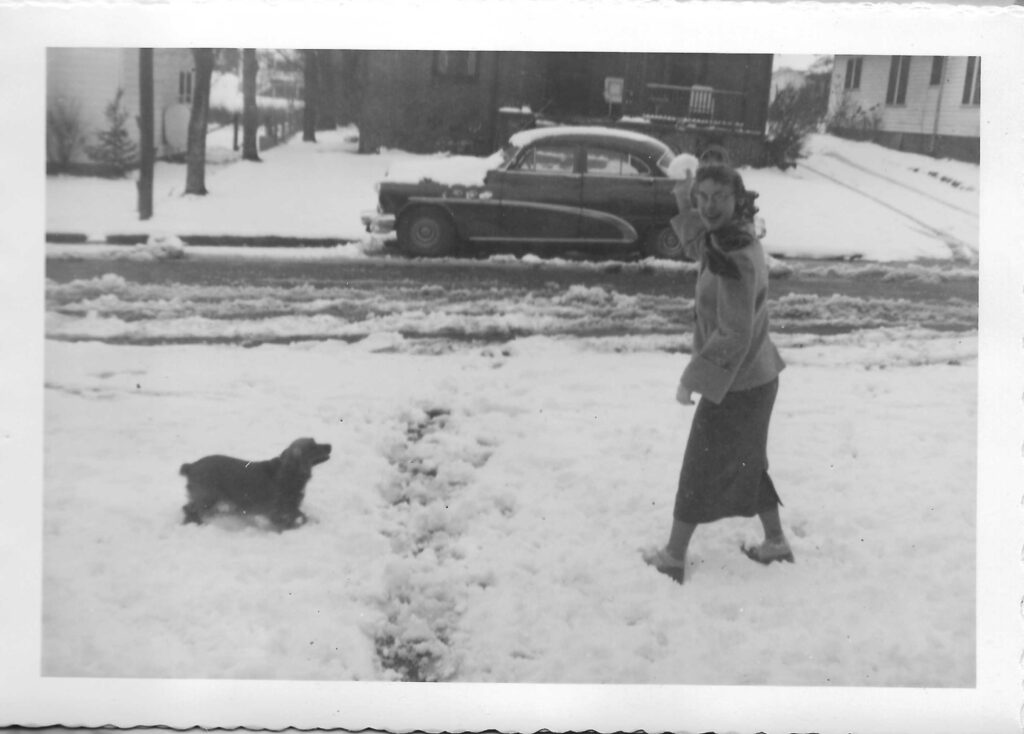
“Most importantly, my mother taught us to be kind, to give back and reminded us that we could accomplish anything we put our minds to,” said Allred. “I come from a legacy of strong women.”
The Road to NC State
For Wattenbarger’s daughters, education was a top priority. Allred and her sisters all were able to attend college — thanks to scholarships.
After graduating from college, Allred’s father began his career in the world of furniture, first in sales, then moving on to designing pieces. “I remember him sketching designs on napkins at our kitchen table, and then seeing those sketches come to life in the furniture market,” said Allred.
Her father’s sketching paired with her mother’s passion for sewing, textiles and art cultivated a passion for design in Allred.
She was accepted into the Textiles program in 1975, and received a scholarship that made her attendance possible. Shortly after she received her acceptance letter, she heard that she was also accepted into the College of Design, and so she attended NC State as a double major.
Even doing summer school twice, the double major had little course overlap and it took four and a half years for Allred to graduate. She worked part-time at Sadlack’s on Hillsborough Street to help cover costs, though the road looks much different now than when she attended.
Her hard work during school quite literally paid off. In Allred’s last year at NC State, she won the Lewis Cramer award, which supported an 8-week study abroad program at the Scottish College of Textiles. And by the time she graduated, Allred said her father would brag to his friends that her entire education had only cost $6,000, thanks to the scholarships she earned.
“I know that they were both very proud of me,” said Allred of her parents.
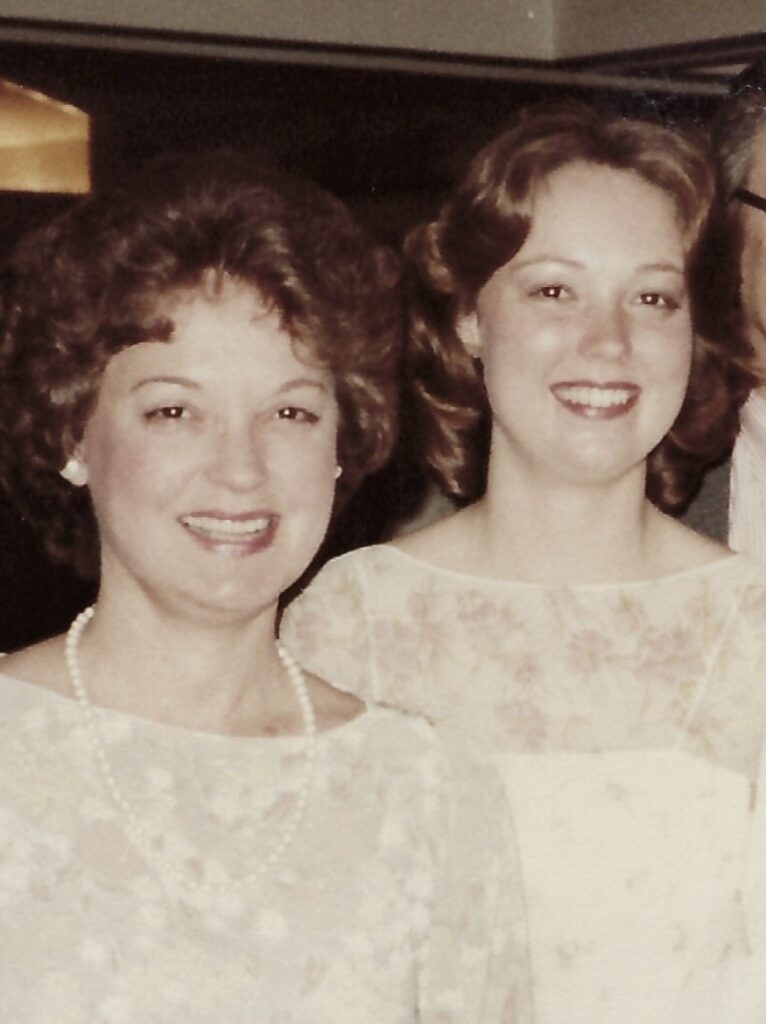
These accomplishments would also earn her a long and exciting career. From textile engineering to designing upholstery and mattress fabrics, Allred did it all. During her 40-year career, she was consistently using techniques she learned right on NC State’s campus.
“The fundamentals that professors like Alan Donaldson and Joe Cox taught were essential in my career success,” she said. “You might think you’ll never use something you learn in a particular class, but who knows what path you’ll be called to pursue? This knowledge will take you places you couldn’t predict.”
An Honorable Gift
Near the end of her life, Marilyn Wattenbarger was diagnosed with Alzheimer’s, a challenging diagnosis and experience for the entire family. Yet, Allred continues to keep the memory of her mother’s interesting and beautiful life palpable through stories, photos, and now, a scholarship at NC State.
This gift is going to multiply, and it will continue giving.
The Marilyn Wattenbarger Scholarship Endowment will support Wilson College of Textiles students with high financial need, prioritizing students from Randolph and Guilford counties, Allred’s current home base.
“The impact that Laura’s scholarship will have in transforming the lives of our textile students is immeasurable,” said David Hinks, dean of the Wilson College of Textiles. “Generous support like hers is the driving force behind our students’ success during their time on campus and long after they graduate. We are honored to call Laura an esteemed graduate of this college and are thankful she chose to honor her mother, Marilyn, in such a meaningful way.”
The average annual need per NC State student is $17,000, with nearly 50% of undergraduates qualifying for need-based aid based on federal guidelines. Allred hopes that the scholarship will connect the university to more gifted students like her mother.
“I hope it allows them to reach their dreams, to raise their standard of living for themselves and their children, and to eventually be able to give back like I’m able to now,” said Allred.
Her decision to support the Wilson College of Textiles was easy. In an industry that seemed to be drifting away from the United States during part of her career, Allred is excited to see the future of textiles expanding and she’s impressed with how NC State is preparing for that future. Sustainable textiles, in particular, stirs Allred’s passion for the industry and the role it could play in the future of our planet.
Allred’s stories of her mother make it clear that Wattenbarger was an immensely kind, vibrant and intelligent person who deserved every opportunity to pursue higher education. Allred’s gift will ensure that more students like Wattenbarger will have that door opened to them.
“This gift is going to multiply, and it will continue giving,” said Allred.
“I truly can’t think of a better way to honor my mom’s memory.”
Open Doors, Fuel Success.
This post was originally published in Giving News.
